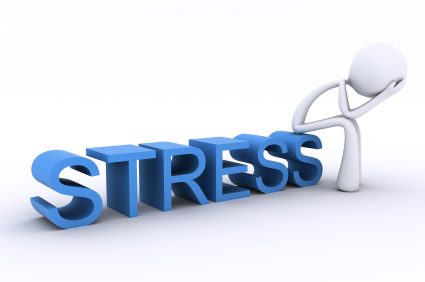
Do you know that your body’s unique alarm system, the “fight or flight” hormone response that prepares you to escape from danger is designed to turn off when the threat is over? However, in today’s fast-paced world, workplace demands, family life, personal issues, societal, and cultural pressures, create unrelenting stress that is damaging to your health and wellbeing.
How does stress affect you?
Your body produces two hormones, cortisol, and adrenaline when you’re in a stressful situation. These “fight or flight” hormones prepare your body to confront or run away from danger.
They make your heart beat faster, narrow your blood vessels, cause a rise in blood pressure, and increase blood sugar and other energy supplies. The stress hormones also help your brain, and muscle use glucose more efficiently to get you out of danger. This is all good.
The thing is, your body can’t distinguish between physical or emotional stress and so releases stress hormones regardless of what causes the stress. When the stressful event is over, your blood pressure and heart rate quickly return to normal. Your blood sugar level lowers a bit more gradually.

Why chronic stress is bad for your health
Chronic stress is bad for you. It’s not just because it makes your heart race, gives you a headache, and makes you moody. Unrelenting stress maintains a high level of cortisol in your body that damages almost every system and worsens medical conditions you may already have.
Chronic stress accelerates aging at the cellular level, making the cells of your body and brain die prematurely. It increases your risk of a variety of health problems from the common cold to cancer, including:
- Anxiety
- Depression
- Diabetes
- Digestive problems
- Headaches
- Heart disease
- Hypertension
- Sleep problems
- Cancer
- Weight gain
- Hormonal imbalance
- Infertility
- Erectile dysfunction
- Diminished immunity
- Memory and concentration impairment
- Premature aging

Benefits of stress management
Don’t be stressed out by the thought of adding, “learn stress management techniques” to your already hectic life. Learning to manage stress is a life skill that can be the difference between life and death for everyone living in the digital age.
Like some, you may be skeptical about the effectiveness of stress management strategies, but research shows that they work to lower the negative health impact of chronic stress.
Healthy stress management improves your physical and mental health. It protects you from unnecessary energy drain and builds greater resiliency in the face of life’s ups and downs. It improves your focus, memory, and allows you to think clearly and not emotionally.
Stress management strategies that work
Stress management is all about eliminating stressful situations, activities, and relationships when possible and when that’s not feasible, changing how you respond to the stress.
Stress management strategies that you can use in the moment and long-term as well:
- Healthy relaxation techniques. Fifteen to twenty minutes a day of sitting quietly, taking deep breaths and focusing your mind on a peaceful picture helps you relax. Meditation, prayer, and yoga are also great ways to release tension and relax.
- Shift your perspective. If possible avoid or eliminate what stresses you. Accept what you can’t change. You can’t control everything, but you can control how you respond emotionally. Focus on the positives, on gratitude and helping others.
- Learn to say no. It’ll reduce your stress and shorten your to-do list and commitments.
Long-term stress management strategies:
- Get plenty of sleep. During sleep, your brain repairs itself, consolidates memories, and grows new brain cells. Your mood, health, energy level, and mental sharpness all deteriorate when you don’t get enough sleep.
- Exercise. Exercise is a natural mood-booster and stress-buster. 30 minutes a day, 3 to 5 times a week will yield enormous benefits for your emotional and physical health.
- Stay connected to others. Stress can tempt you to disconnect from family and friends, but research shows that strong, healthy relationships are good for emotional and physical health.
- Improve your time-management skills. Give yourself time to get things done. Efficiently juggling work responsibilities and family demands will lower your stress level.
- Slow down and take care of yourself. Re-prioritize things. Eat slowly, enjoy your cup of tea, and focus entirely on whatever you’re doing. Go for a walk, take a nap, or listen to your favorite music and dance.
Chronic stress may be an inevitable part of life, but you can minimize its harmful effects on your health. Try it right now. Stop whatever you’re doing, give yourself 10 minutes to take deep slow cleansing breaths and visualize a serene and beautiful place or recall a happy memory. You owe it to yourself.

